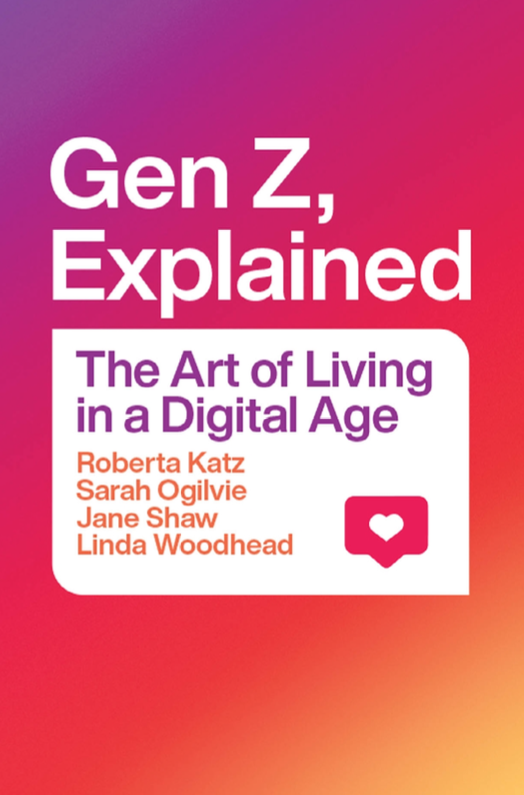
Gen Z and the Art of Living in a Digital Age
Dr Sarah Ogilvie, Senior Research Fellow in Linguistics, Dean of Welfare, and Tutor for Women at Campion Hall, shares with us some fascinating findings from her latest book, "Gen Z, Explained: The Art of Living in a Digital Age."
 A few years ago, when teaching a linguistics class at Stanford, I wanted the students to become aware of language around them, so I asked them to go out onto campus and write down every new word they heard. I expected them to return to class with thirty or forty words. They returned with 350.
A few years ago, when teaching a linguistics class at Stanford, I wanted the students to become aware of language around them, so I asked them to go out onto campus and write down every new word they heard. I expected them to return to class with thirty or forty words. They returned with 350.
The new words which the students collected revealed the emergence of a new culture: new concepts of time and attention (triple speed, IRL); new values of authenticity and collaboration (collab, relatable); new genders and sexualities (demiboy, juxera, skoliosexual); new relationships (fam, enbyfriend, rave bae), and a new awareness of mental health and the importance of care for the whole self, or cura personalis, as we might call it at Campion (duck syndrome, self-care, struggle bus).
Around the same time, I was in conversation with three colleagues – an anthropologist, an historian, and a sociologist – who had also observed something unique about the student cohort, and wanted to understand them be er. We wanted to listen to them in their own words, in order to find out more about their mindsets, their attitudes, and their values. We wanted to take a snapshot of this genera on, i.e. to put it in a broader historic framework rather than compare them with different generations (it is not a cross-generational study).
We embarked on an ethnographic study of those born in the mid 1990s - the first generation never to know the world without the internet – popularly known as Gen Z, iGen, Zoomers, or digital natives. There were three prongs to our research: we interviewed 120 students from diverse social and cultural backgrounds at three locations (Lancaster University, Foothills Community College, and Stanford University); we conducted two large national surveys in USA and UK; and we created and analyzed a large databank of their language.
As the linguist on the team, I believe that language is the key to culture and that by studying Gen Z language we would be able to gain insight into their view of the world. I collaborated with a group (or ‘squad’ as they called it) of student research assistants at Stanford, colleagues at the Stanford Natural Language Processing Lab, and Robert Fromont at the University of Canterbury to build a 70-million word collection, or ‘corpus’, of Gen Z language.
We applied machine learning algorithms where necessary to extract the language of people within our target age group. We wanted a selec on of natural language from social interactions (e.g. Twitter), discussion groups (e.g. Reddit), gaming (e.g. Twitch), imageboards (e.g. 4chan), and video (e.g. me-aligned transcriptions from Youtube). We also included transcriptions of our interviews, and thousands of memes, emoji, and copypastas from Facebook and Instagram.
In general, our research resulted in a very positive portrait of this age group. For them, their online and o ine lives are seamless. Authenticity is very important and relates to how they define their identity, how they find their communities of belonging, and what captures their a en on on the Internet. They are remarkably collaborative, enjoying at rather than hierarchical ways of working that have been enhanced by technology, which affects how they see leadership and contributes to a disillusionment with institutions. They are dedicated to self-care, mental health, and the use of humour to negotiate difficulties (epitomized in memes), which they are be better at articulating than older generations. They see themselves as having inherited a lot of problems from previous genera ons, especially the environmental challenge, which is another factor in their skepticism about institutions.
You can hear more about Gen Z, Explained: The Art of Living in a Digital Age on BBC Start the Week. Dr Sarah Ogilvie was also recently featured in The Guardian.

